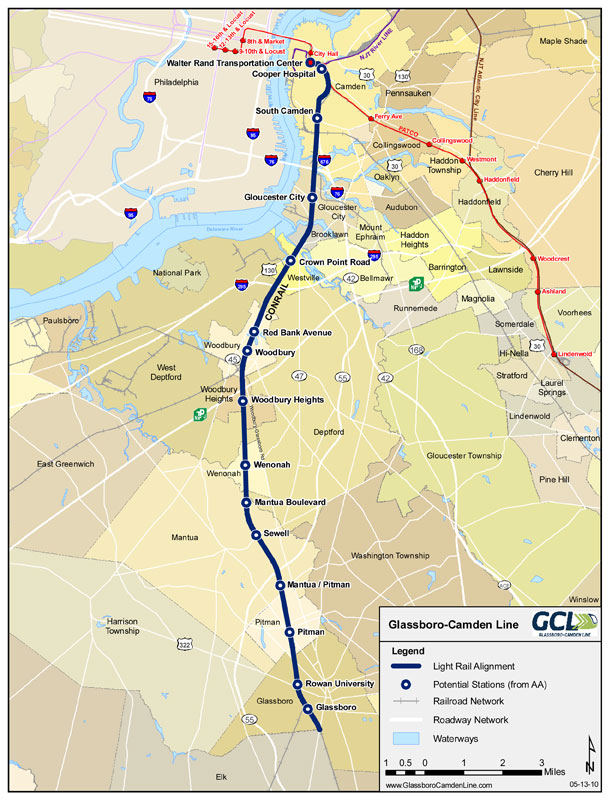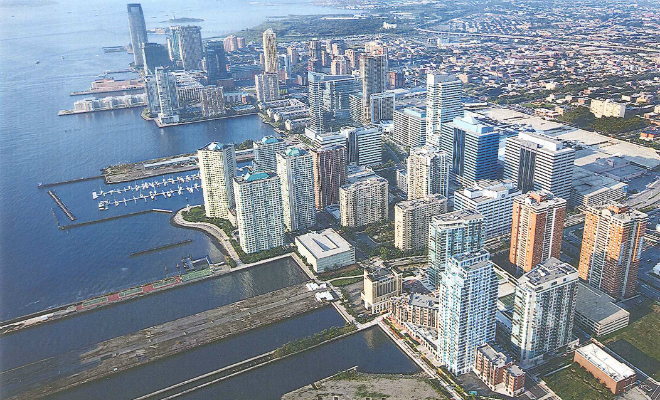New Jersey Future Blog
Tolls and Transit: Perfect Together?
October 6th, 2008 by Tim Evans
- The New Jersey Turnpike Authority announced plans in September to increase tolls on the Turnpike and the Garden State Parkway by 50 percent in 2009, by another 50 percent after five years and by 10 percent after 15 years, raising a total of $9.7 billion.
- Gov. Jon Corzine has directed the Authority to scale back the proposed toll hike, reduce its operating costs and impose a hiring freeze. At a minimum, however, a modest increase in tolls will be necessary simply to cover the Authority’s ongoing debt service.
- The Turnpike Authority is also proposing to use toll revenues to finance two major highway widening projects—one on the Turnpike, one on the Parkway—as well as the state’s share of the cost of the new Access to the Region’s Core (ARC) rail tunnel under the Hudson River.
Tunnel is Land-Use Winner; Highway Widening is Mixed Bag
It appears inevitable that tolls will soon be going up on the New Jersey Turnpike and the Garden State Parkway. What remains to be seen is how much they’ll go up, and what the revenues will be used for.
The Turnpike Authority needs an infusion of money just to cover its debt service because toll receipts are lagging—a direct result of people cutting back on their driving due to the recent spike in gas prices. Moreover, toll increases on these roadways haven’t kept pace with inflation; tolls on the Turnpike haven’t been raised since 2000, and on the Parkway since 1989.
The Authority is also proposing to widen the Turnpike between Interchange 6 (where it hooks up with the Pennsylvania Turnpike) and Interchange 9 (New Brunswick), and the Parkway between Interchange 30 (Somers Point) and Interchange 63 (Manahawkin/Long Beach Island). The price tag for these projects is estimated at $3.3 billion.
And the state is obligated to come up with $1.25 billion to cover its share of the new trans-Hudson rail tunnel in order to qualify for full federal funding of this bi-state project.
From a land-use perspective, the ARC tunnel is a clear winner. Manhattan is a huge employment destination for New Jerseyans; one of every 15 employed New Jersey residents works there. What’s more, 71 percent of these workers use transit to get to work (split about evenly between rail and bus riders). Encouraging transit ridership—and transit-supportive land-development patterns—is a key element of any strategy aimed at not only relieving highway traffic, but also reducing greenhouse-gas emissions and dependence on oil.
The transit system is desperately in need of new capacity. NJ Transit is already squeezing as many trains as it can (23 per hour) through the existing rail tunnels under the Hudson River. Constraints on existing capacity limit the number of additional Manhattan-bound commuters who can be carried by train, which in turn hampers efforts by NJ Transit and the state Department of Transportation to foster the creation of new “transit villages” and to institute new rail transit services. The agencies can’t court new transit riders if the capacity isn’t there to accommodate them.
The benefits of widening the Turnpike are somewhat less obvious, because they are driven largely by supra-regional forces. While ordinarily it might be said that widening a highway to reduce congestion is like loosening one’s belt to reduce obesity, the Turnpike is something of a special case, in that it carries such a large volume of interstate traffic, especially trucks. The Turnpike is a vital artery to the economic health of the entire Northeast Corridor—and, because much of the traffic it carries has both origins and destinations that are not in New Jersey, it has less direct impact on, and is less directly affected by, the state’s land-use practices than other major highways, such as the Parkway, that carry a greater proportion of intra-state traffic.
For this reason, the case for widening the Parkway is far weaker. Arguing that the southern reaches of the Parkway need to be able to handle summer weekend shore traffic at free-flow conditions is akin to insisting that retail parking lots be large enough to accommodate Black Friday shopping. Also, widening the stretch of the Parkway that forms the eastern boundary of the Pinelands raises serious environmental concerns. And the economic arguments for widening the Turnpike fail in the case of the Parkway; it does not allow trucks north of Asbury Park (thus precluding its use as a conduit for pass-through commercial traffic) and its southern end is a dead end, consigning it to handling primarily intra-New Jersey travel. Concerns about traffic might better be addressed by improving land-use practices and local road connectivity in the towns along neighboring Route 9, thereby taking local trips off Route 9 and enabling it to better serve as an alternative to the Parkway for through traffic.
Beyond the two major widening projects, the proposed toll increase contemplates several billion dollars in additional improvements to the Turnpike and Parkway over the next 10 years, including more widenings. In today’s economic and environmental climate, these projects demand much closer scrutiny and analysis before any money is spent on designing or building this additional road capacity.
Whatever form the toll increase ends up taking, and to whatever purpose the revenues end up being used, it is important to recognize that this is a stop-gap measure. For the moment, New Jersey urgently needs to fund its share of the ARC tunnel and the Turnpike Authority needs to meet its debt-service payments. Ultimately, however, the state needs a broader, longer-term solution to transportation funding, one that will replenish and maintain the Transportation Trust Fund, which is used to pay for a wide variety of transportation projects statewide and is due to run out of money in 2011. Planning for this eventuality cannot be put off much longer.
If you have any questions about this issue of Future Facts, please contact Tim Evans, Research Director.
















